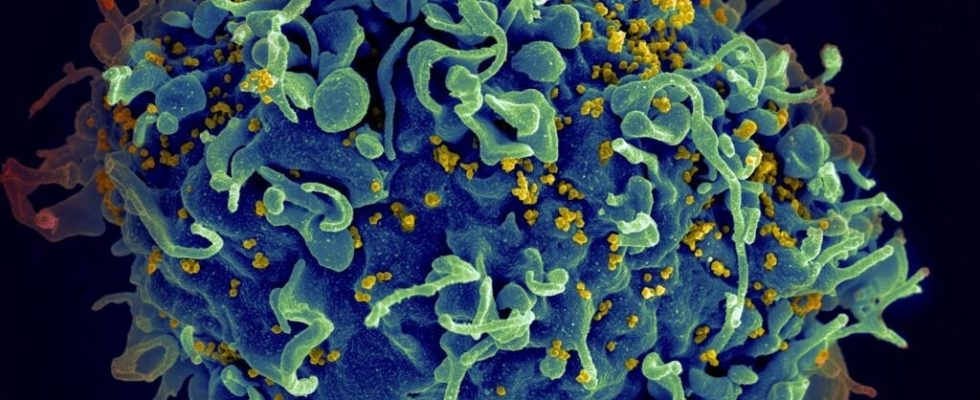In a progress report published this Friday, September 15, the European Center for Disease Prevention and Control (ECDC) estimates that most countries in Europe and Central Asia are still far from reaching the goal of eradication of the AIDS epidemic by 2030.
2 mins
The joint United Nations program on HIV, UNAIDS, aims to end AIDS as a global health threat by 2030. This involves reducing the number of new HIV cases by 90%. by the end of the decade, compared to 2010.
“ New HIV infections and AIDS-related mortality have declined in recent years and continue to decline », Explains Andrea Ammon, doctor and director of this health agency of the European Union, in an interview with AFP. This decline suggests that the measures taken to stem the epidemic “ are effective, but not sufficient to achieve the objective set for 2030 “, she says.
95-95-95
The study was carried out between January and March 2022 among the 53 WHO Europe countries. In this region, some 83% of people living with HIV know their HIV status, 85% of these people are on life-saving antiretroviral treatment and 93% of people on treatment have a suppressed viral load and therefore no longer transmit the virus, quite far behind the so-called objectives 95-95-95 » who recommend that all these rates reach 95% by 2025.
Read alsoA new case of HIV remission after a bone marrow transplant
Around one in six people living with AIDS do not know their HIV status, out of the 45 countries in Europe and Central Asia that responded to data collection forms sent by the ECDC.
Discrimination
Seven countries have already reached the 2025 target of people living with HIV knowing their virological status: Monaco, Kosovo, Iceland, Austria, United Kingdom, Serbia and Portugal.
In this progress report, the ECDC has for the first time attempted to quantify the discrimination and stigma experienced by people living with HIV in Europe. Due to the lack of data, it is nevertheless impossible to give a precise picture of the situation on this subject. “ But we can already see that 30% of those surveyed did not even tell a single member of their family that they were HIV positive for fear of repercussions. “, notes Andrea Ammon. “ I think that says a lot. »
Read also40 years ago, French researchers discovered the AIDS virus
(With AFP)
